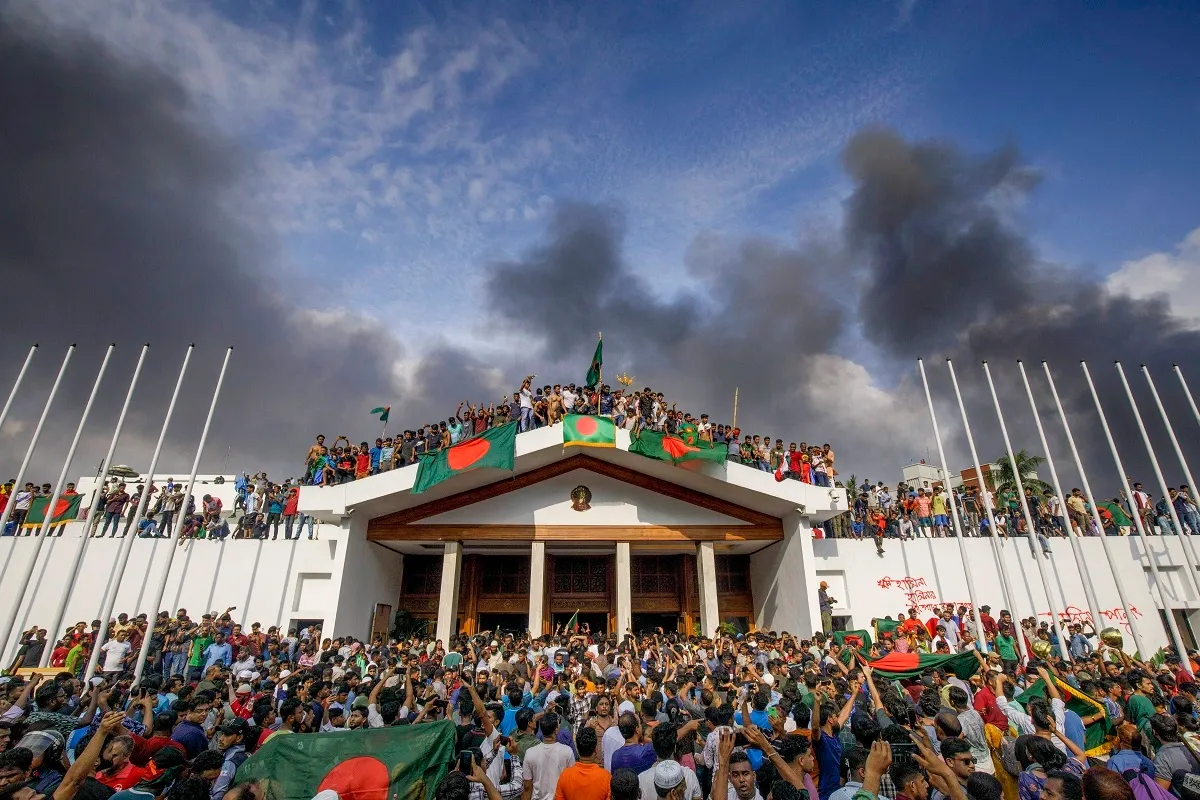Business News
Marico to Trent and VIP: These Indian companies face pressure as Bangladesh plunges into crisis
.png)
3 min read | Updated on August 06, 2024, 15:02 IST
SUMMARY
Bangladesh, a solid manufacturer due to its strong labour force and a key consumer owing its significant domestic demand, remains key to the operations of several Indian companies. Among those who could be affected by the ongoing crisis includes Indian FMCG players and textile retailers.

Protesters gathered outside the residence of Bangladesh's ousted PM Sheikh Hasina on August 5 (PTI photo)
Bangladesh has plunged into chaos, as a nationwide revolt has forced the country's prime minister Sheikh Hasina to flee the nation.
Apart from the geopolitical ramifications, the economic impact could also be felt in the South Asia region as Bangladesh remains a key producer and consumer of several goods and services.
According to Andrew Wood, S&P Global Ratings' Director - Sovereign and International Public Finance Ratings (Asia-Pacific), the domestic demand conditions in Bangladesh are expected to remain weak amid this period of turmoil.
This is probably going to entail less support for exports from other countries, including India, into Bangladesh, Wood said.
Indian FMCG firms may face pressure
In its earnings statement released on Monday, Marico mentioned that Bangladesh contributed a substantial 44% to its international business revenue in the financial year 2023-24. This was equivalent to 12% of Marico’s total consolidated revenue.
The company mentioned that it was working towards geographical diversification in the overall international business to reduce dependence on the Bangladesh business. However, it still estimates that around 40% of the international revenue would continue to come from Bangladesh in FY27.
Marico's stock lost as much as 4.4% on Tuesday to hit an intra-day low of ₹642.5 apiece on the National Stock Exchange of India (NSE).
Other FMCG majors, including Emami, Dabur, Britannia and GCPL also have significant exposure to the Bangladeshi market. However, unlike Marico, they draw only up to 5% of their total revenue from the country.
Other Indian companies in focus
- Trent
The Tata Group-owned fashion retailer relies on Bangladesh as one of its sources of products, along with Thailand and Hong Kong. However, Trent has not disclosed the exact quantum of sourcing from these countries.
- VIP Industries
The luggage maker could be significantly impacted by the crisis in Bangladesh as the country accounts for 30-35% of its total production capacity. The company operates a total of eight advanced manufacturing facilities in the country.
Shares of VIP Industries were in the red during the trading session on Tuesday. At 2:51 pm, they were trading 1.03% lower at ₹445 apiece on the NSE.
- Jubilant Foodworks
The India-headquartered quick-service restaurant (QSR) firm, which operates pizza chain Domino's, also operates in the Bangladeshi market. The company has a total of 28 stores in the country, which account for an estimated 1% of its total consolidated sales.
By signing up you agree to Upstox’s Terms & Conditions
About The Author
Next Story

